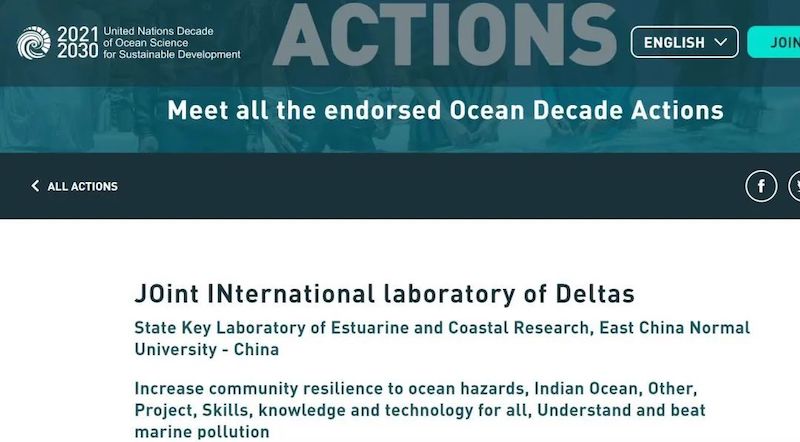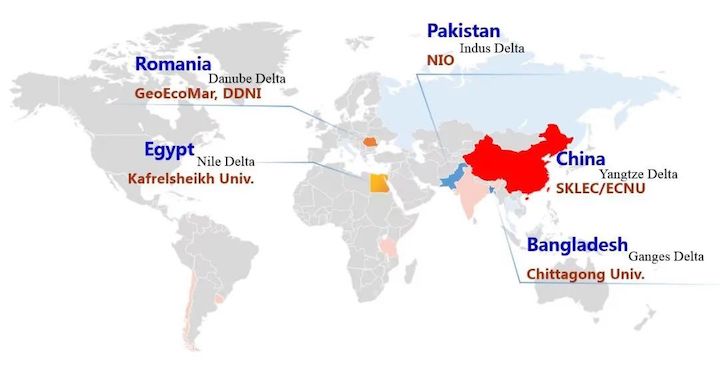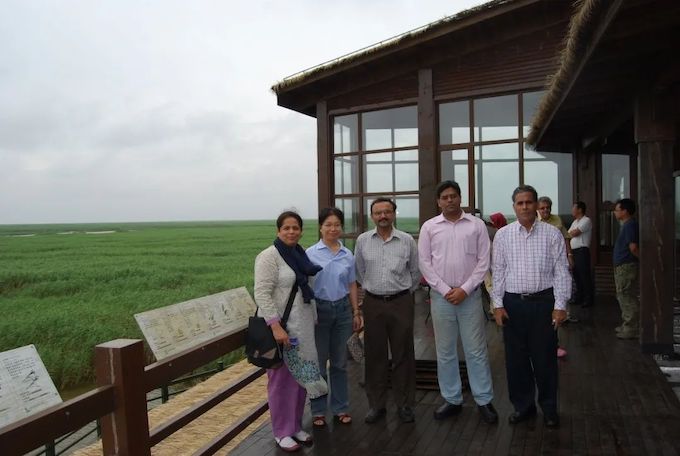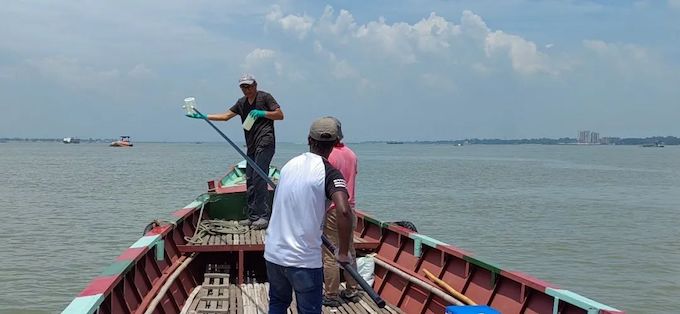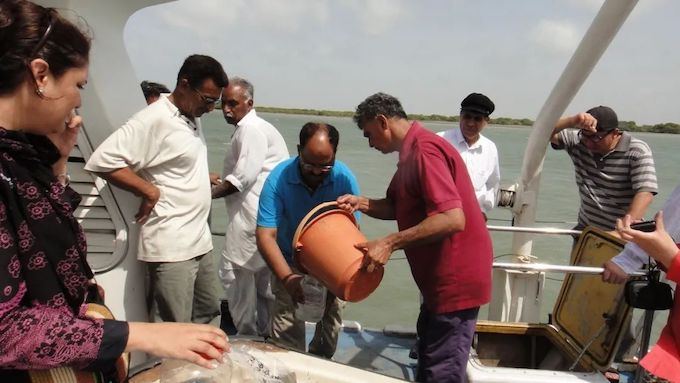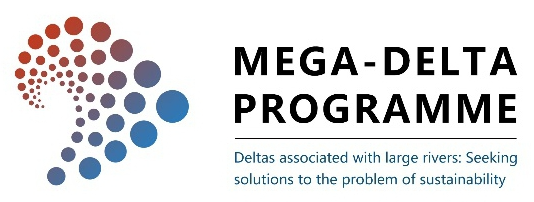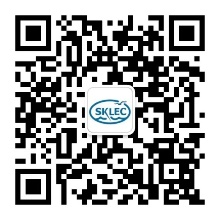On September 28, 2022, the United Nations Decade of Ocean Science for Sustainable Development (2021-2030) announced the newly endorsed 31 actions on its website. The Joint International Laboratory of Deltas (Joint-Delta) project led by the State Key Laboratory of Estuarine and Coastal Research, East China Normal University (SKLEC, ECNU) is listed as one of the Ocean Decade actions (https://www.oceandecade.org/actions/joint-international-laboratory-of-de...). This is the second action led by SKLEC after the Mega-Delta Programme, which was endorsed in June 2021 by the UN Ocean Decade in the first batch of actions.
Joint-Delta is affiliated to the “Mega-Delta Programme” of UN Ocean Decade, which is also led by SKLEC. Meanwhile, Joint-Delta is supported by the Science and Technology Commission of Shanghai Municipality from 2021 to 2024. The Kick-off Meeting for the International Joint Laboratory was held online on January 19, 2022. More than 40 scientists and government officials from five countries attended this meeting (http://www.sklec.ecnu.edu.cn/node/6905).
As a part of the Joint-Delta Project, scientists from partner countries conducted intensive field campaign in 2022 during the extreme summer drought at the Yangtze Estuary, the extreme flooding at the Indus Delta in Pakistan, as well as the flooding at the Ganges-Brahmaputra Delta in Bangladesh.
Estuaries and coasts are the key and vulnerable areas for the economic growth of the Maritime Silk Road countries and regions. Under the influence of climate change and human activities, the coastal zones all over the world are faced with multiple challenges such as storm surges, flooding, coastal erosion, degradation of ecological environment and damage to public health, which urgently need solutions with scientific and technological support. This Joint-Delta Lab is marked as a supporting project of Mega-Delta programme, the latter being endorsed by the UN Decade of Ocean Science for Sustainable Development in June, 2021. Based on the research achievements and international cooperation of the State Key Laboratory of Estuarine and Coastal Research, we are establishing an international joint laboratory with the leading institutions from Pakistan, Bangladesh, Egypt, Romania and other countries. The cooperation is carried out through international academic cooperation, scientific and technological personnel exchange, students training and resources sharing. To improve the scientific research and innovation ability of cooperative partners. The joint laboratory will become a platform for information exchange and sharing among partner institutions, and serve the needs of partner countries for disaster prevention and mitigation, environmental protection and public health.
Partners of Joint-Delta Project
On September 28, 2022, the project “Periodic cyclone effects on Gangetic food web” (https://www.oceandecade.org/actions/periodic-cyclone-effects-on-gangetic...) led by Estuarine and Coastal Studies Foundation of India affiliated to the “Mega-Delta Programme” was also endorsed by the UN Decade of Ocean Science for Sustainable Development . This project mainly focuses on the Biodiversity (Plankton, Benthos, Fish, mangrove), Biogeochemical cycle (nutrients and carbon cycle), Livelihood options (agriculture and fisheries), Living standards (cyclone forced refugees), and Knowledge sharing at the Ganges Delta.
BACKGROUD INFORMATION
The vision of the United Nations Decade of Ocean Science for Sustainable Development (2021-2030) is the science we need for the ocean we want. The Ocean Decade is a convening framework for diverse stakeholders to co-design and co-deliver solution-oriented research needed for a well-functioning ocean in support of the 2030 Agenda. Capacity development, ocean literacy and the removal of barriers to full gender, generational, and geographic diversity are essential elements of the Decade.
The Plan documents the Decade outcomes that describe the ocean we want by 2030. It describes a series of ten Ocean Decade Challenges that will unite partners around common ocean science priorities related to knowledge gaps, essential infrastructure, capacity development, and behavior change. These Actions - taking the form of programs, projects, activities or contributions - will be implemented throughout the Decade to create collectively the Ocean We Want and help achieve the 2030 Agenda and related global policy frameworks.




